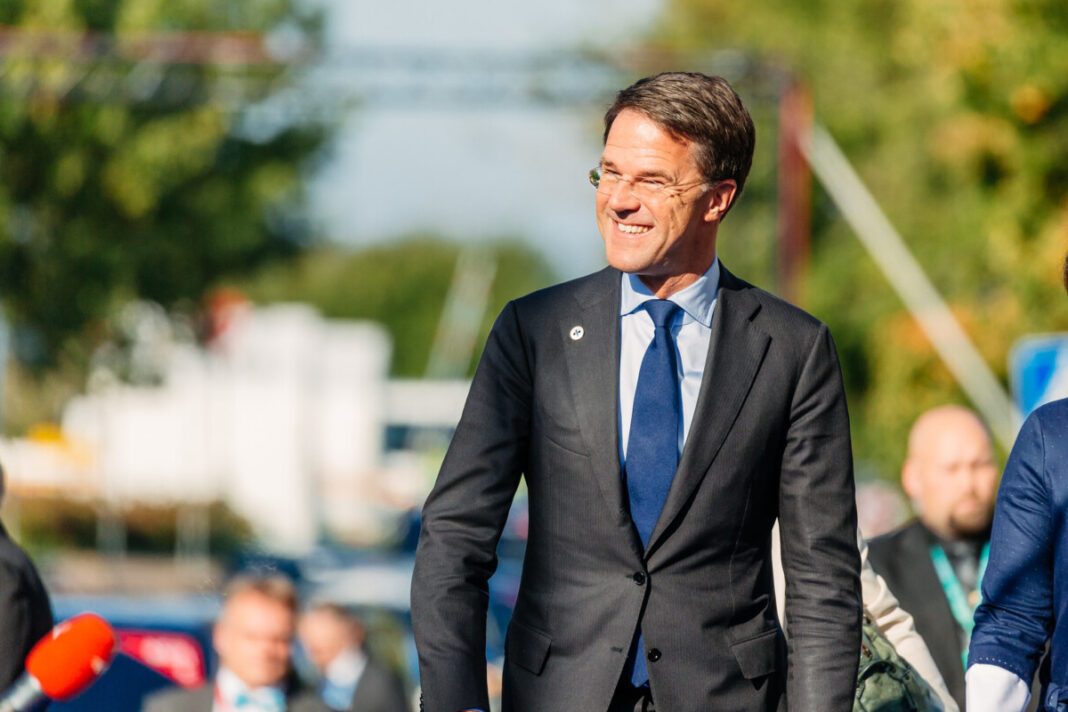The exit poll is just in and although one or two seats might change hands the general outcome is clear. Incumbent Prime Minister Mark Rutte and the VVD wins the elections once again with an expected 35 seats of the 150 available seats in the Dutch parliament.
Normally the leader of the largest party becomes Prime Minister. Mark Rutte (VVD) therefore stands to become the longest-serving Prime Minister in Dutch history.
Right after that is Sigrid Kaag from D66 with a whopping 27 seats beating Wilders with his PVV which comes in third with 17 seats. Hoekstra and the CDA end up with 14 seats. The parties on the left: PvdA, SP and Green Left all turn in disappointing results.
Dutch elections: battle for the second place
In some way, the only element of suspense in this election is which party comes in second place. This is important, not only on a symbolic level but also because it can decide who will become the Minister of Finance. Rutte has already excluded Wilders (or Baudet for that matter) from participating in any new coalition. Therefore many people are also eyeing whether the CDA or D66 becomes the bigger party, as these parties are likely to once again participate in the upcoming coalition. It looks like D66 takes the coveted second place.
Another big takeaway from the polls is the big number of parties likely gaining their first seats in parliament. Volt for example stands to gain 4 seats.
Exit polls of the Dutch parliamentary (150 seats) elections of March 17 2021
VVD (Rutte)35 seats
D66 (Kaag)27
PVV (Wilders)17
CDA (Hoekstra)14
PvdA (Ploumen)9
GL (Klaver)6
SP (Marijnissen)8
CU (Segers)4
PvdD (Ouwehand)6
FvD (Baudet)7
SGP (Van der Staaij)3— DutchReview (@Dutchreviewing) March 17, 2021
Click on the tweet to check out where the other seats go
The IPSOS/NOS exit poll is considered pretty accurate. Although this election there is a greater margin of uncertainty since the relatively large share of postal votes and the three days of voting.
So what happens next and who will be in the new Dutch coalition?
This evening we might know who the winners and losers are, but what we don’t yet know for sure is who will or won’t be in the House of Representatives. After Wednesday, the Electoral Council needs a few days to finalise the results, count the preferential votes and allocate the remaining seats.
The formation of a cabinet normally starts on Thursday, when the chair of parliament – Khadija Arib – receives the newly elected group of political party leaders. These leaders choose an explorer or scout (verkenner), who will talk to other political parties to see who wants to be part of a ruling coalition. Parties that lost votes usually don’t put themselves forward. When the verkenner has spoken with all parties and has made a final report, the new House of Representatives (which takes its seats on March 31) will appoint an informateur who will then really get to work.
It is common for the largest party to take the lead and provide verkenner and informateur (the person who puts the coalition together) and later on the formateur (who speaks to prospective ministers), but not before the votes are counted. All of this can take many months, but there is a general feeling in the country that this process should not take more than a few weeks in order to create a stable government during the coronavirus pandemic.
But you can bet that the VVD already has a list of names ready to go for the pivotal formation positions.
Looks like 4 more years of Mark Rutte after these Dutch elections! How do you feel about that and the exit polls?
Feature Image: Arno Mikkor/Flickr/CC2.0




Exit polls suggest that the leading party has under 25% of the seats?! It looks like several political groups are going to have to be included in a coalition. On the plus side of multi party systems, at least you have to work hard at pleasing every possible leaning. First-past-the-post does not often lead to coalitions.